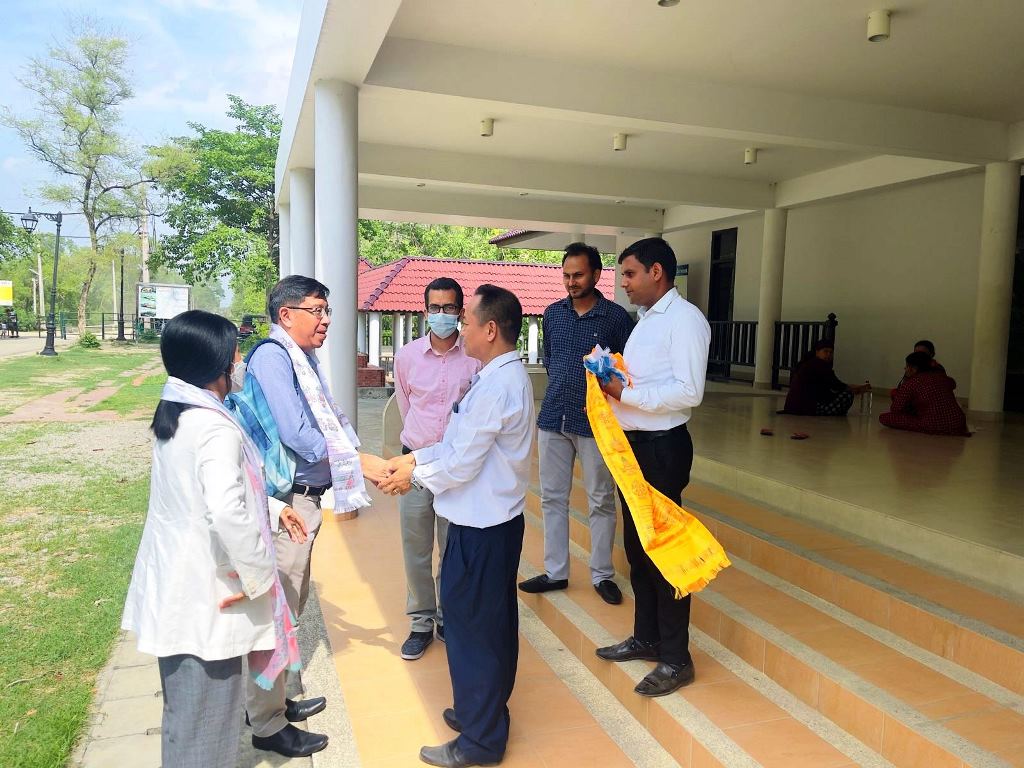LDT Vice Chairman Attends WFB Program in Phnom Penh
The World Fellowship of Buddhists (WFB) organized a program in Phnom Penh, which was attended by Ven. Metteyya (Avadhesh Tripathi), Vice Chairman of the Lumbini Development Trust. During the event, Cambodian Prime Minister Hun Sen was honored with the title of "Patron of the WFB" in recognition of his dedication to his nation, its people, and Buddhism in Cambodia.
The title of "Patron" is bestowed upon esteemed leaders within both the country and the Buddhist community who demonstrate unwavering support for and adherence to the principles of Buddhism by the WFB. Currently, there are eight individuals holding the title of "Patron," including the Supreme Patriarch of Thailand, former Malaysian Prime Minister Mahathir Mohammad, the President of Sri Lanka, the King of Thailand, the President of Thailand, the President of Nepal, the President of India, and the Prime Minister of Thailand, as well as the President of the Buddhist Federation of Japan.
Phan Wannamethee, President of the WFB, expressed that this prestigious honor was bestowed upon Prime Minister Hun Sen in recognition of his effective efforts in promoting peace and fostering national unity. Wannamethee highlighted the Prime Minister's commitment to governing Cambodia in accordance with Buddhist teachings, emphasizing the principles of nation-building and win-win politics, which have contributed to the prosperity, peace, social and religious harmony, environmental sustainability, and overall development of the country.
The Prime Minister humbly acknowledged that this honor was not only bestowed upon him personally but also extended to the entire nation of Cambodia, which is a Buddhist country characterized by its peacefulness, prosperity, and harmony. He described the offer as a symbol of the Buddha's wisdom, which has had a profound impact on human lives through various domains, including society, culture, politics, and the economy.
During his stay in Cambodia, Vice Chairman Ven. Metteyya engaged in discussions with Cambodian and other foreign dignitaries, focusing on the strengthening of Buddhism's role in promoting peace, social and religious harmony, and sustainable development. These conversations took into account the remarkable strengths, dynamism, and rich cultural heritage and natural wonders of Nepal and beyond.

 Nepali
Nepali English
English



